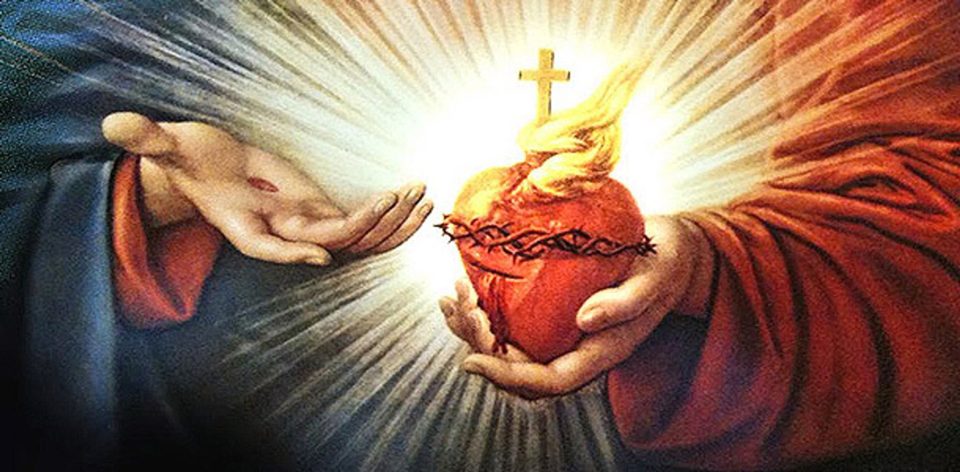DAILY GOSPEL COMMENTARY . “I HAVE COME TO SET FIRE ON EARTH” (Lk 12:49–53).
Jesus the cause of dissension
Jesus said to his disciples: “I have come to set the earth on fire, and how I wish it were already blazing! There is a baptism with which I must be baptized, and how great is my anguish until it is accomplished! Do you think that I have come to establish peace on the earth? No, I tell you, but rather division. From now on a household of five will be divided, three against two and two against three; a father will be divided against his son and a son against his father, a mother against her daughter and a daughter against her mother, a mother-in-law against her daughter-in-law and a daughter-in-law against her mother-in-law.”
Gospel Commentary from the Navarre Bible, Commentary of the Gospel of St. Luke (with permission)
- 49-50 In the Bible, fire is often used to describe God’s burning love for men (cf. Deut 4:24; Ex 13:22; etc).
- This divine love finds its highest expression in the Son of God become man: “God so loved the world that he gave his only Son” (Jn 3:16). Jesus voluntarily gave up his life out of love for us, and “greater love has no man than this, that a man lays down his life for his friends” (Jn 15:13).
- In these words reported by St Luke, Jesus Christ reveals his abounding desire to give his life for love of us.
- He calls his death a baptism, because from it he will arise victorious never to die again.
- Our Baptism is a submersion in Christ’s death, in which we die to sin and are reborn to the new life of grace: “we were buried therefore with him by baptism into death, so that as Christ was raised from the dead by the glory of the Father, we too might walk in newness of life” (Rom 6:4).
- Through this new life, we Christians should become set on fire in the same way as Jesus set his disciples on fire:
- “With the amazing naturalness of the things of God, the contemplative soul is filled with apostolic zeal. ‘My heart became hot within me, a fire blazed forth from my thoughts’ (Ps 38:4). What could this fire be if not the fire that Christ talks about: ‘I came to cast fire upon the earth, and would that it were already kindled.’ (Lk 12:49). An apostolic fire that acquires its strength in prayer: there is no better way than this to carry on, throughout the whole world, the battle of peace to which every Christian is called to fill up what is lacking in the sufferings of Christ (cf. Col 1:24)” (St. Josemaria Escrivá, Christ is passing by, 120).
- 51-53 God has come into the world with a message of peace (cf. Lk 2:14) and reconciliation (cf. Rom 5:11).
- By resisting, through sin, the redeeming work of Christ, we become his opponents.
- Injustice and error lead to division and war. “Insofar as men are sinners, the threat of war hangs over them and will so continue until the coming of Christ; but insofar as they can vanquish sin by coming together in charity, violence itself will be vanquished” (Vatican II, Gaudium et spes, 78).
- During his own life on earth, Christ was a sign of contradiction (cf. Lk 2:34). Our Lord is forewarning his disciples about the contention and division which will accompany the spread of the Gospel (cf. Lk 6:20-23; Mt 10:24).
VIDEO COMMENTARY
TOPIC: Are you the cause of peace or the piece that causes division?
In today’s gospel (Luke 12:49-53), Jesus utters words that may seem confusing and disturbing to us. He says He has come not to bring peace but division on earth. Does this make sense to you? Didn’t Jesus give peace to His disciples during the Last Supper: “Peace I leave with you; my peace I give to you. Not as the world gives do I give it to you. Do not let your hearts be troubled or afraid” (John 14:27)? And when He rose from the grave and visited them, weren’t His first words, “Peace be with you” (John 20:19)? So what does today’s liturgy mean?
Stay updated: subscribe by email for free TO OUR NEW WEBSITE www.catholicsstrivingforholiness.org (PUT YOUR EMAIL IN THE SUBSCRIBE WIDGET).
We are also in www.fb.com/Catholicsstrivingforholiness. Kindly help more people in their Christian life by liking our page and inviting your family, friends and relatives to do so as well. Thanks in advance and God bless you and your loved ones! Fr. Rolly Arjonillo
